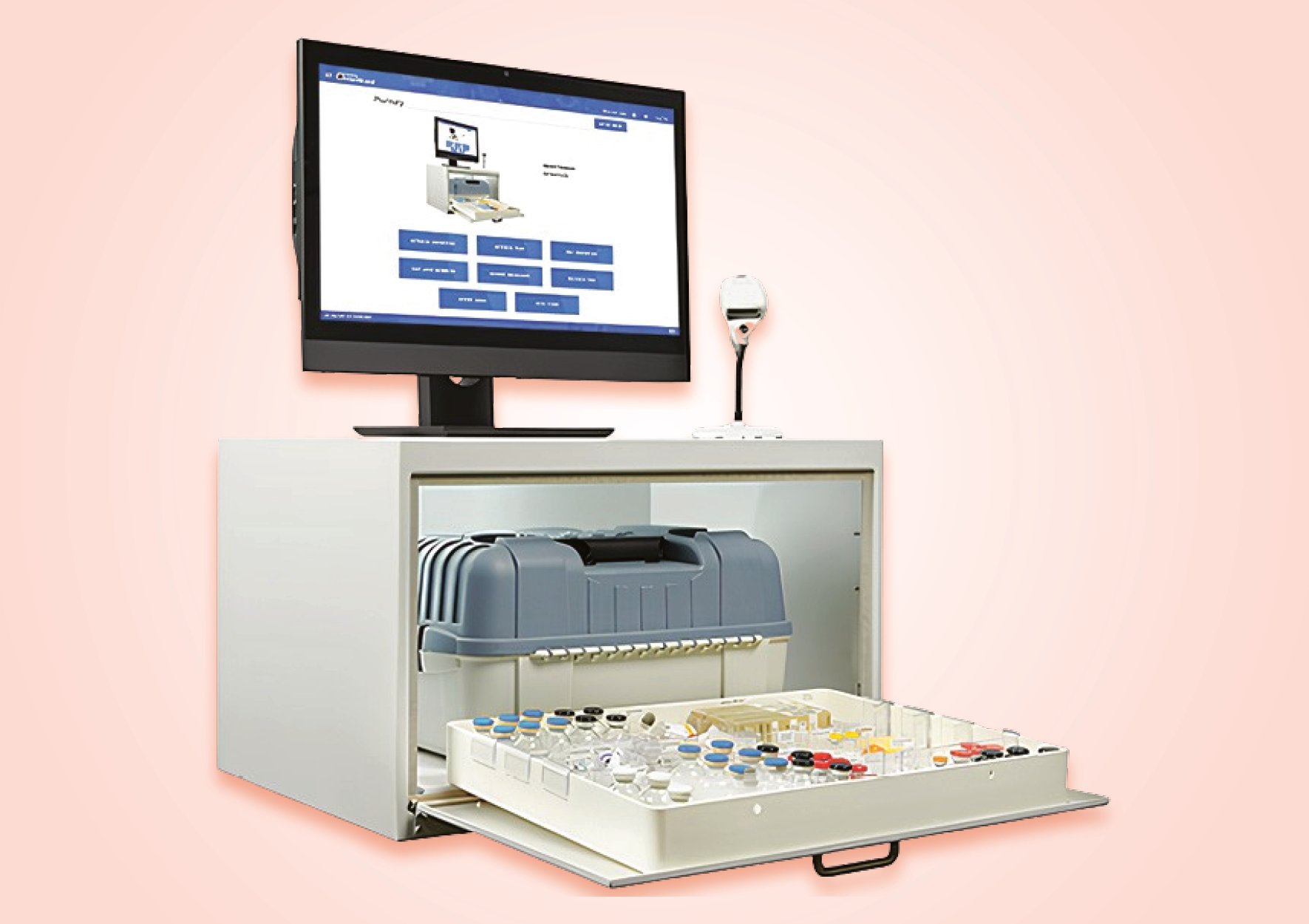- Show Menu
- Contact Us
- FAQs
- Reader Service
- Survey Data
- Survey Winners
- Testimonials
- Upcoming Events
- Webinars
- White Papers
Medical Grade Refrigerators
When it comes to drug refrigeration systems, either in the pharmacy or on the floor, the goal is to have systems that work dependably in the background, maintaining drugs within their required temperature ranges, without causing any hassle for pharmacy staff. When refrigeration systems go out of range, not only are there safety risks and high costs from product loss, but there is also a drain on pharmacy resources to consider. Being pulled away from more important tasks to address an out-of-range system invariably leaves pharmacists frustrated.
After facing just these kinds of challenges, our pharmacy chose to switch to medical grade refrigerators for all of our medication storage. With medical grade refrigerators, we are better able to ensure temperature consistency, provide ease of serviceability, and utilize external, wireless temperature monitoring systems.
Medical grade refrigerators are able to bring temperatures down much more quickly than non-medical grade units. For drugs with very narrow temperature ranges, such as vaccines, the ability to consistently keep the temperature within range is key. With medical grade refrigerators, we no longer have the variation in temperatures between different units that we often found in our non-medical grade units. Because of the greater efficiency of compressors in medical grade refrigerators, they reach their target temperature faster and are able to maintain it better. While our previous refrigerators could take 15-20 minutes to bring their temperature back down to the target range after the door was opened, our medical grade refrigerators generally stay within range even when the door is opened.
Features In your search for the right medical grade refrigerator, you want to consider serviceability, storage volume, and its ability to maintain temperature. A front-mounted compressor will allow for much easier service than a compressor that is underneath the cabinet. In determining the cubic volume you will require, consider not only your current needs, but also your future storage needs. To determine how well a refrigerator maintains temperature, check how quickly a unit is able to bring its temperature back down to the established temperature after the door is opened repeatedly. We also looked at construction material. Stainless steel refrigerators are highly durable. Unlike the non-medical grade refrigerators that are typically constructed with quite a bit of plastic components, the medical grade refrigerators withstand the normal wear and tear better.
With our new refrigerators we no longer have to worry about insubstantial hinges and poor seals that result in temperature leaks and a constantly running compressor. In addition, our engineering department weighed in on the compressors. They requested serviceable compressors that can be quickly removed and easily replaced. Consider purchasing glass front refrigerators, which allow you to check product without opening the door and creating an opportunity for the temperature to rise and the compressor to run. The fewer times you open the refrigerator should positively impact the life of the unit. Digital thermometers mounted on the front of the refrigerator are ideal as there is no reason to open the refrigerator door to read the temperature.
Adjustable set points allow you to establish custom temperature ranges for different units. We set a four-degree temperature range, outside of which the refrigerator kicks on and off. This helps us stay within our range and ensures energy efficiency. The ability to easily mount electronic locking mechanisms that tie in with your automated dispensing cabinets are another advantage to medical-grade refrigerators. We use the Pyxis Remote Manager which required a standard interface that allowed us to mount the locking mechanism on the refrigerator. The vendor we chose had a specific flange on the door that was purposefully built to accommodate the electronic lock, ensuring that the system worked well.
Wireless Temperature Monitoring We first moved to wireless temperature monitoring with our previous refrigerators. Once we automated our temperature tracking, we realized the amount of temperature adjusting we needed to do every day was significant. That change really clarified the need to replace our refrigerators with medical grade models.
Having a wireless temperature monitoring system that does not rely on human performance is definitely an advantage from a compliance standpoint. Typically one of the first things a TJC surveyor looks for is documentation establishing consistent monitoring of refrigerators. With an automated system, I can run any required reports and easily demonstrate consistency. There is never a time when I do not know how my refrigerators are performing, even in clinics that are closed over the weekend. We have established an alerting tree for those times when an intervention is necessary. If the first tier does not respond within the set time, the system automatically escalates the warning and can send out pages, calls, or e-mails. These interventions are also documented within the system.
Return on Investment
While medical grade refrigerators require a higher upfront investment than their non-commercial counterparts, the expenses resulting from lost product in the event of a failed refrigerator can easily run into the thousands of dollars.
The cost of wasted drugs resulting from a failed refrigerator comes right off your bottom line as they will need to be replaced. There is additional risk for facilities involved in the national Vaccines for Children program or a similar state program. If you need to replace a significant amount of product that was given to the hospital for free, this is basically a direct cost to the taxpayers and could put your enrollment in such a project in jeopardy.
Given the substantially higher quality of medical grade refrigerators, we are comfortable with our long-term investment ensuring proper storage for our medications. Because we chose to replace all of our refrigerators at one time, we were able to take advantage of quantity discounts. Engineering also appreciated our purchasing all of the same refrigerators as they no longer have the expense of stocking compressors from multiple manufacturers.
Conclusion
When I go home at night, I am confident that our refrigerated medications are properly maintained. With our medical grade refrigerators and wireless temperature monitoring, our refrigeration issues —which used to take up a lot of our time — have receded into the background. The system works reliably and is easy to monitor. We are confident that the TJC will be satisfied that our drugs are properly stored.
Peter Haverkamp, RPh, is the Director of Pharmacy Services at Metro Health Hospital in Wyoming, Michigan and serves as an adjunct faculty member in the College of Pharmacy at Ferris State University. Peter has written and presented both nationally and internationally on medication safety issues.
Like what you've read? Please log in or create a free account to enjoy more of what www.pppmag.com has to offer.








